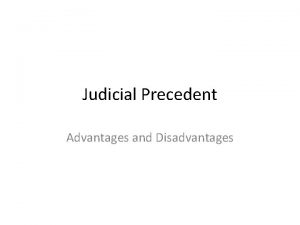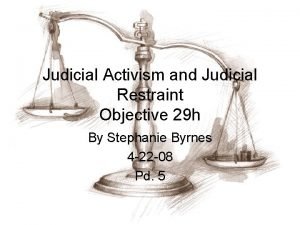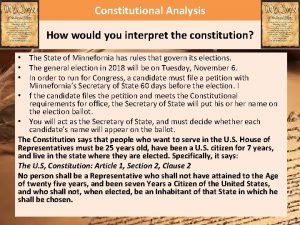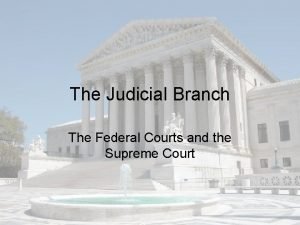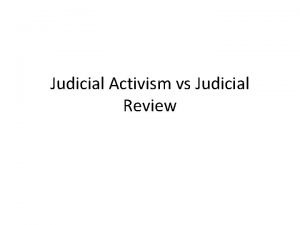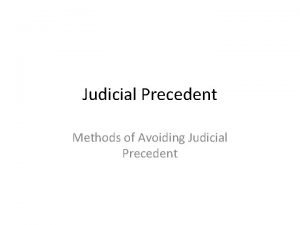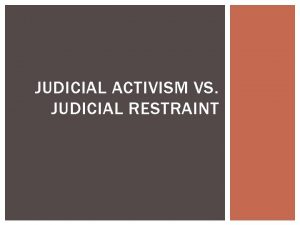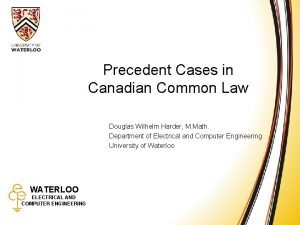Date 19 June 2021 Judicial Precedent Hierarchy of







- Slides: 7

Date: 19 June 2021 Judicial Precedent – Hierarchy of the courts Lesson Outcomes: • Describe the hierarchy of the courts • Explain which courts are bound by other courts & the exceptions to this Specification: • The Doctrine of Precedent: the hierarchy of the courts; stare decisis, ratio decidendi and obiter dicta; law reporting. General Rule: 1) Every court is bound to follow a decision from a court above 2) Appellate courts are bound by their own past decisions Starter: What is the name of the highest court in England & Wales? http: //www. youtube. com/watch? v =w. THryn. ZIs. Bo&feature=player_em bedded 1

Divide your paper into two: See if you can remember the hierarchy of courts in criminal and civil Law

Civil Cases Criminal Cases European Court of Justice Supreme Court (formerly House of Lords) Court of Appeal (Civil Division) Court of Appeal (Criminal Division) Divisional Courts Queen’s Bench Divisional Court High Court Crown Court County Court Magistrates’ Court

Court European Court Supreme Court of Appeal Divisional Courts High Court Crown Courts bound by it Courts it is bound by

The Supreme Court Until 1966 the House of Lords was bound by its own previous decisions unles they were made per incuriam (through lack of care) e. g. failing to refer to the relevant Act or precedent London Street Tramways v London County Council (1898) AC 375 Earl of Halsbury LC: "a decision of this House once given upon a point of law is conclusive upon this House afterwards, and that it is impossible to raise that question again as if it was res integra and could be re-argued, and so the House be asked to reverse its own decision. That is a principle which has been, I believe, without any real decision to the contrary, established now for some centuries, and I am therefore of opinion that in this case it is not competent for us to rehear and for counsel to re-argue a question which has been recently decided. "

The Supreme Court In 1966 the Lord Chancellor issued a Practice Statement stating that it would be OK for the House of Lords to depart from its own decisions but it should be used sparingly in order to maintain certainty and consistency. British Railways Board v Herrington (1972) AC 877 A six year old boy was electrocuted and suffered severe burns when he wondered from a play park onto a live railway line. The railway line was surrounded by a fence however, part of the fence had been pushed down and the gap created had been used frequently as a short cut to the park. The defendant was aware of the gap in the fence which had been present for several months, but had failed to do anything about it. Principle – Under existing authority of Addie v Dumbreck (1929) no duty of care was owed to trespassers. However, the House of Lords departed from their previous decision using the 1966 Practice Statement and held that the defendant railway company did owe a duty of common humanity to trespassers.

Independent reading There is much more information regarding the Supreme Court, House of Lords and the use of the Practice statement in your textbook. Make sure you read this independently, take notes and note down the key authority (cases) Key points & cases • Use of the Practice Statement in Civil Law • Herrington v British Railways Board • Knuller v DPP- Lord Reid quote (S&C) • Use of the Practice Statement in criminal law • Shivpuri – Lord Bridge quote (S&C) • R v G and R • Whether the Practice Statement applies to the Supreme Court • Austin v London Borough of Southwark

